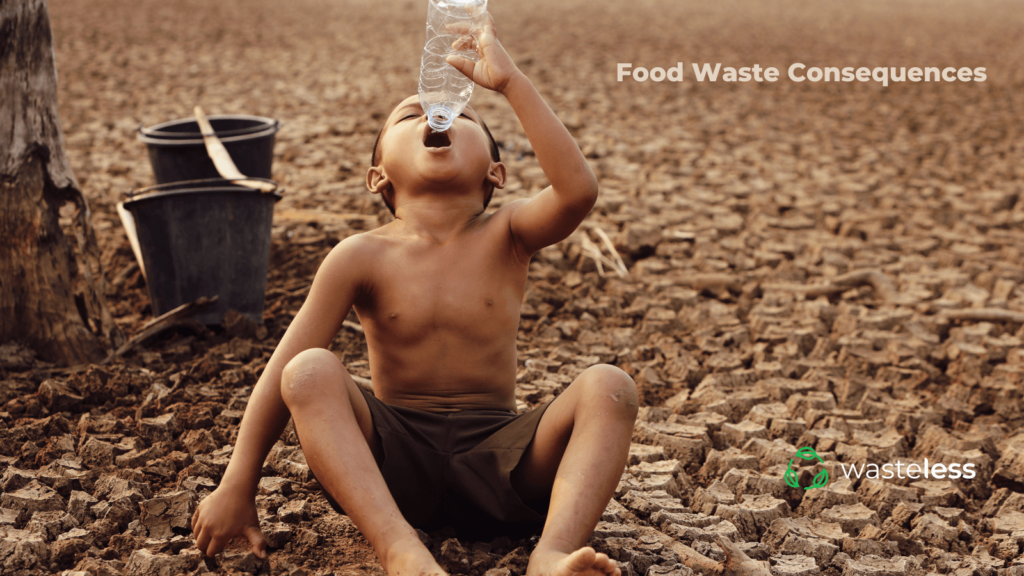Consequences of food waste
By: Angelika Mantur-Vierendeel
From: EuroFIR (European Food Information Resource)
Food waste has emerged as a pressing global issue with significant consequences that span various sectors, impacting the economy, the environment, and social aspects. Repercussions of food waste extend far beyond mere disposal of food scraps. In fact, it touches the very core of our society and the planet.
One of the major consequences of food waste is its economic impact. Beyond the moral implications of wasting food when millions go hungry, it also represents a massive loss of valuable resources. Think about all the efforts put into growing, harvesting, processing, and transporting food from farm to fork. When food goes to waste, all the resources that were used in its production, such as water, land, energy, and labour, are squandered as well. This not only leads to financial losses for farmers, food manufacturers, retailers, and consumers, but it also puts immense strain on the economy as a whole.
Moreover, the consequences of food waste directly contribute to the persistent issue of hunger and food insecurity. Around 690 million people worldwide suffer from chronic hunger. This distressing reality is worsened by the fact that food waste reduces the availability of food that could otherwise be used to feed those in need. By curbing food waste and optimising our food systems, we can ensure that more food reaches those who are food-insecure or vulnerable to hunger.
Food waste also leaves a considerable carbon footprint. When discarded food ends up in landfills, it undergoes anaerobic decomposition, releasing methane – a potent greenhouse gas that significantly contributes to climate change. Additionally, resources used in food production, such as water and energy, are essentially wasted along with the wasted food. Addressing food waste is, therefore, a crucial element in tackling climate change and alleviating the strain on natural resources.
Beyond the environmental implications, food waste also impacts water and land usage. Agriculture, a major contributor to food production, accounts for a significant portion of global water consumption. When food is wasted, it means that valuable water resources have been used inefficiently. By reducing food waste, we can help conserve precious water resources and simultaneously alleviate the pressure on water-scarce regions. Furthermore, the need for land conversion for agricultural purposes can be minimised, safeguarding vital ecosystems and preserving biodiversity.
Speaking of biodiversity loss, food also affects the wildlife and ecosystems. The expansion of agricultural lands often leads to deforestation and habitat destruction, resulting in the loss of biodiversity. When food is wasted, it indicates that the land and resources used for its production have contributed to biodiversity loss unnecessarily.
Finally, there are also ethical issues- the paradox of wasting food while millions suffer from hunger and food insecurity is not only deeply concerning but also morally questionable. It calls for a fundamental change in our approach to food management and distribution, emphasising the importance of equitable access to food for everyone.
Addressing the consequences of food waste calls for collective efforts from all corners of society. Implementing better food management practices, improving distribution channels, and raising awareness about the significance of reducing food waste are essential steps to take. At the individual level, adopting mindful consumption habits, such as planning meals, buying only what is needed, and properly storing leftovers, can significantly reduce food waste. Businesses should also play a pivotal role by optimising supply chains, embracing sustainable practices, and donating surplus food to those in need. Governments, on the other hand, can create policies and incentives that encourage responsible food management and waste reduction. Nonprofit organisations can also play a vital role to play in raising awareness, fostering collaborations, and advocating for change.

